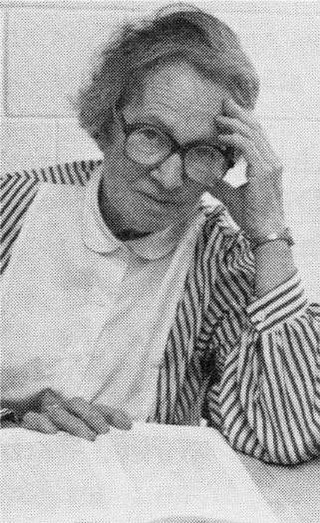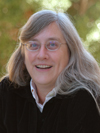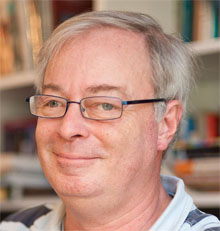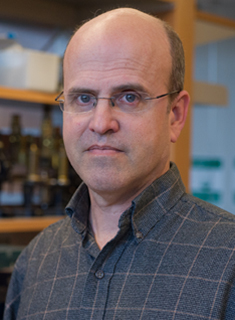Related Research Articles

Interdisciplinarity or interdisciplinary studies involves the combination of multiple academic disciplines into one activity. It draws knowledge from several other fields like sociology, anthropology, psychology, economics, etc. It is about creating something by thinking across boundaries. It is related to an interdiscipline or an interdisciplinary field, which is an organizational unit that crosses traditional boundaries between academic disciplines or schools of thought, as new needs and professions emerge. Large engineering teams are usually interdisciplinary, as a power station or mobile phone or other project requires the melding of several specialties. However, the term "interdisciplinary" is sometimes confined to academic settings.
The philosophy of biology is a subfield of philosophy of science, which deals with epistemological, metaphysical, and ethical issues in the biological and biomedical sciences. Although philosophers of science and philosophers generally have long been interested in biology, philosophy of biology only emerged as an independent field of philosophy in the 1960s and 1970s, associated with the research of David Hull. Philosophers of science then began paying increasing attention to biology, from the rise of Neodarwinism in the 1930s and 1940s to the discovery of the structure of DNA in 1953 to more recent advances in genetic engineering. Other key ideas include the reduction of all life processes to biochemical reactions, and the incorporation of psychology into a broader neuroscience.

The Acoustical Society of America (ASA) is an international scientific society founded in 1929 dedicated to generating, disseminating and promoting the knowledge of acoustics and its practical applications. The Society is primarily a voluntary organization of about 7500 members and attracts the interest, commitment, and service of many professionals.

Marjorie Glicksman Grene was an American philosopher. She wrote on existentialism and the philosophy of science, especially the philosophy of biology. She taught at the University of California at Davis from 1965 to 1978. From 1988 until her death, she was Honorary University Distinguished Professor of Philosophy at Virginia Tech.
The Society for Historians of American Foreign Relations (SHAFR) was founded in order to “promote excellence in research and teaching of American foreign relations history and to facilitate professional collaboration among scholars and students in this field around the world.” It is the preeminent organization in its field, with nearly 1,300 current members in over forty countries. It hosts an annual conference, and publishes the quarterly Diplomatic History. It also publishes a triennial newsletter, Passport. SHAFR has increasingly fostered connections with international institutions and organizations.
David Lee Hull was an American philosopher who was most notable for founding the field philosophy of biology. Additionally, Hull is recognized within evolutionary culture studies as contributing heavily in early discussions of the conceptualization of memetics. In addition to his academic prominence, he was well known as a gay man who fought for the rights of other gay and lesbian philosophers. Hull was partnered with Richard "Dick" Wellman, a Chicago school teacher, until Wellman's passing during the drafting of Science as Process.

The Academia Europaea is a pan-European Academy of Humanities, Letters, Law, and Sciences. The Academia was founded in 1988 as a functioning Europe-wide Academy that encompasses all fields of scholarly inquiry. It acts as co-ordinator of European interests in national research agencies.

The Society for Philosophy and Psychology (SPP) is a professional organization in North America that promotes discussion and research at the intersection of philosophy, psychology and cognitive science. Its stated purpose is "to promote interaction between philosophers, psychologists and other cognitive scientists on issues of common concern." To this end, it organizes an annual conference, maintains a listserve, and awards research prizes.

William C. Wimsatt is professor emeritus in the Department of Philosophy, the Committee on Conceptual and Historical Studies of Science, and the Committee on Evolutionary Biology at the University of Chicago. He is currently a Winton Professor of the Liberal Arts at the University of Minnesota and Residential Fellow of the Minnesota Center for Philosophy of Science. He specializes in the philosophy of biology, where his areas of interest include reductionism, heuristics, emergence, scientific modeling, heredity, and cultural evolution.

The Konrad Lorenz Institute for Evolution and Cognition Research (KLI) is an international center for advanced studies in the life and sustainability sciences. It is a "Home to Theory that Matters" that supports the articulation, analysis, and integration of theories in biology and the sustainability sciences, exploring their wider scientific, cultural, and social significance. The institute is located in Klosterneuburg, near Vienna, Austria. Until 2013, the institute was located in the family mansion of the Nobel Laureate Konrad Lorenz in Altenberg. Lorenz' work laid the foundation for an evolutionary approach to mind and cognition.

An academic discipline or academic field is a subdivision of knowledge that is taught and researched at the college or university level. Disciplines are defined and recognized by the academic journals in which research is published, and the learned societies and academic departments or faculties within colleges and universities to which their practitioners belong. Academic disciplines are conventionally divided into the humanities, including language, art and cultural studies, and the scientific disciplines, such as physics, chemistry, and biology; the social sciences are sometimes considered a third category.
James R. Griesemer is an American professor of philosophy at the University of California, Davis in Davis, California specializing in philosophy of biology.
The Altenberg Workshops in Theoretical Biology are expert meetings focused on a key issue of biological theory, hosted by the Konrad Lorenz Institute for Evolution and Cognition Research (KLI) since 1996. The workshops are organized by leading experts in their field, who invite a group of international top level scientists as participants for a 3-day working meeting in the Lorenz Mansion at Altenberg near Vienna, Austria. By this procedure the KLI intends to generate new conceptual advances and research initiatives in the biosciences, which, due to their explicit interdisciplinary nature, are attractive to a wide variety of scientists from practically all fields of biology and the neighboring disciplines.
Esther Lightcap Meek is an American philosopher who is Professor of Philosophy emeritus at Geneva College, in Western Pennsylvania. She is a Fellow Scholar with the Fujimura Institute with artist Makoto Fujimura, an Associate Fellow with the Kirby Laing Center for Public Theology, and a member of the Polanyi Society.
Joe Cain is a historian of science who specialises in the history of evolutionary biology. He is currently Professor of History and Philosophy of Biology at University College London, and from 2011 to 2019 he was Head of Department of UCL's Department of Science and Technology Studies. He was also editor of BSHS Monographs, a series published by the British Society for the History of Science.

Jane Maienschein is an American professor and director of the Center for Biology and Society at Arizona State University.

Werner Callebaut was a professor at the University of Hasselt, scientific director of the Konrad Lorenz Institute for Evolution and Cognition Research, editor and chief of Biological Theory, and president of The International Society for the History, Philosophy, and Social Studies of Biology.

Michael R. Dietrich is a professor of the history and philosophy of science at the University of Pittsburgh. His research concerns developments in twentieth century genetics, evolutionary biology, and developmental biology, with a special emphasis on scientific controversies.
The Canadian Communication Association is a national, bilingual association of communications researchers, educators, and private and public sector professionals in Canada. Established in 1979, the CCA/ACC "seeks to advance communication research and studies in the belief that a better understanding of communication is crucial to building a vibrant society."
Rachel Ankeny is a professor of history and philosophy of science at University of Adelaide. In 2020, she was elected as a fellow in the American Association for the Advancement of Science (AAAS) "for her contributions to our understanding of the foundational roles that organisms play in biological research and her leadership in history and philosophy of science." She is currently the president-elect of the International Society for the History, Philosophy, and Social Studies of Biology (ISHPSSB).
References
- 1 2 "About ISHPSSB".
{{cite web}}: CS1 maint: url-status (link) - 1 2 "Encontro traz biologia sob olhar da filosofia e das humanidades – Jornal da USP". jornal.usp.br. 7 July 2017. Retrieved 2020-11-30.
- ↑ Woo, Elaine (Mar 22, 2009). "Marjorie Grene dies at 98; historian of philosophy known as independent thinker". Los Angeles Times. Retrieved Nov 30, 2020.
- 1 2 ""That's 'IshKabibble' to you...."". Archived from the original on 2000-08-20. Retrieved Dec 1, 2020.
- ↑ "Origins of "Ishkabibble"". International Society of the History, Philosophy and Social Studies of Biology. Archived from the original on 2013-06-26. Retrieved 2020-02-10.
- 1 2 3 4 Burian, Richard (2009-06-01). "Marjorie Grene: A Remembrance with Special Attention to Her Importance for ISHPSSB". Biological Theory. 4 (2): 183–187. doi:10.1162/biot.2009.4.2.183. ISSN 1555-5550. S2CID 84623429.
- ↑ Council for Philosophical Studies (1983). Philosophy of Biology in the Philosophy Curriculum. San Francisco: San Francisco State University.
- 1 2 Pradeu, Thomas (2017-03-01). "Thirty years of Biology & Philosophy: philosophy of which biology?". Biology & Philosophy. 32 (2): 149–167. doi:10.1007/s10539-016-9558-7. ISSN 1572-8404. S2CID 89757526.
- 1 2 3 4 "In Memory of David Hull: Reflections delivered at the 2011 Biennial meeting of ISHPSSB by his friends and colleagues Jane Maienschein, Robert J. Richards, and Christopher D. Horvath".
- ↑ "Bill Wimsatt honored with the Hull Prize from International Society for History, Philosophy, and Social Studies of Biology".
- ↑ "How Science Can Get the Philosophy It Needs". 6 March 2019.
- ↑ Marlor, Chantelle; Riedlinger, Michelle; Penner, Aaron (2016). "Producing Loveable Monsters: Initial Analysis of the Survey of ISHPSSB Conference Attendees' Interdisciplinary Research Activities". doi:10.13140/RG.2.1.3916.7128.
{{cite journal}}: Cite journal requires|journal=(help) - ↑ As noted in this obitrary of ex-president Werner Callebaut, the society is experiencing "uncontrollable growth." Müller, Gerd B. (2015-03-01). "Liberté, Egalité, Modularité: In Memory of Werner Callebaut (1952–2014)". Biological Theory. 10 (1): 1–4. doi:10.1007/s13752-015-0200-8. ISSN 1555-5550. S2CID 84173528.
- ↑ "Conferência ISHPSSB & ABFHiB 2017". Conferência ISHPSSB & ABFHiB 2017. Retrieved Dec 2, 2020.
- ↑ "Meetings - ISHPSSB.org". www.ishpssb.org. Retrieved 2020-12-02.
- ↑ "Prizes - ISHPSSB.org". www.ishpssb.org. Retrieved 2020-11-29.
- 1 2 "Werner Callebaut Prize - ISHPSSB.org". www.ishpssb.org. Retrieved 2020-11-29.
- 1 2 "Marjorie Grene Prize - ISHPSSB.org". www.ishpssb.org. Retrieved 2020-11-29.
- ↑ "David L. Hull Prize".
- ↑ "Current Council and Editorial Board".
- ↑ Information about past presidents can be found in the newsletter archives. "Newsletter archive".